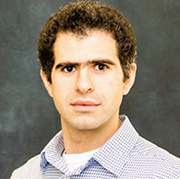A .gov website belongs to an official government organization in the United States.
A lock () or https:// means you've safely connected to the .gov website. Share sensitive information only on official, secure websites.

Starting with controlled combustion of single-molecule fuels, we developed the brown-black continuum framework to describe the large variation in brown carbon (BrC) light-absorption properties reported in the literature. We show that this continuum of light-absorption properties is linked to combustion fundamentals and is associated with a continuum of molecular sizes, volatility, and solubility in organic solvents, as well as differences in toxicity toward lung epithelial cells. Building on this fundamental knowledge, we explore 3 avenues: (1) aerosol formation under conditions representative of next-generation low-temperature combustion (LTC) engine technologies; (2) properties of BrC in biomass-burning emissions; and (3) the effect of photochemical aging on the toxicity of biomass-burning emissions. We also implement findings from laboratory experiments from our group and others into a regional chemical transport model to investigate (1) how/whether implementing BrC absorption in the model enhances its performance, as assessed via detailed model-observation comparisons; and (2) the public health and climate impacts of shifting the U.S. light-duty gasoline fleet from traditional port fuel injection (PFI) to gasoline direct injection (GDI) technology due to differences in emission profiles between PFI and GDI engines.
Dr. Rawad Saleh is an assistant professor at the University of Georgia in the School of Civil, Environmental, Agricultural, and Mechanical Engineering. He received his PhD in Environmental Engineering from Duke University in 2010, and then joined the Center for Atmospheric Particle Studies at Carnegie Mellon University as a postdoctoral fellow and then a research scientist. His research focuses on brown and black carbon and their effect on air quality.
ALL Seminar attendees agree not to cite, quote, copy, or distribute material presented without the explicit written consent of the seminar presenter. Any opinions expressed in this seminar are those of the speaker alone and do not necessarily reflect the opinions of NOAA or CSL.